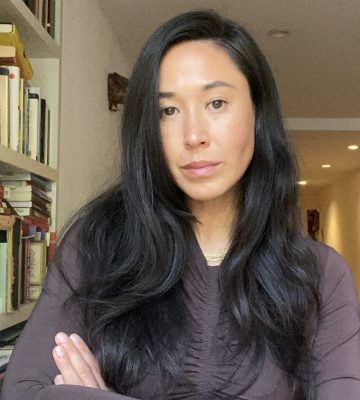
Transform Your Research, Teaching, and Service at a Nationally Ranked Program
The mission of the Department of Curriculum & Instruction, which is ranked No. 34 in the nation, is to advance the quality and equity of education for all. In keeping with the mission, values, and goals of the Neag School of Education, we help emerging scholars effect change and respond to complex educational problems that stem from inequity in schools and other learning environments. Our collective professional identities coalesce around anti-racist teaching and learning; equitable education and educator preparation for all; a conception of educators as professionals and lifelong learners; and a broad view of the methodologies that are needed for meaningful research on these topics. We see education as a collective endeavor; our close partnerships with various stakeholders invested in pre K-12 schools and other education institutions allow for rich field experiences for our Ph.D. candidates.
Our department also works closely with other departments, programs, and institutes across the University to integrate a variety of approaches to teaching and learning; center funds of knowledge that have been left out of traditional academic discourses; assist emerging scholars in mastering and synthesizing research relevant to their own purpose; and conducting inter- and cross-disciplinary work. We invite applicants who bring multiple interests in and commitments to the fields of educator development, instruction, and curriculum, and who want to put these together in new and interesting ways by collaborating with faculty whose research goes beyond traditional approaches (e.g., Literacy Studies with Participatory Action Research, Math Education with Discourse Analysis, Teacher Preparation and Education Policy, etc.).
Doctoral study in the Department of Curriculum and Instruction is research-oriented, and graduates find fulfillment in a variety of careers: higher education professors and researchers; teacher educators; K-12 administrators; and more.
Ph.D. Application Fee Waiver
The Neag School is waiving the $75 application fee for 100 Ph.D. Program applicants on a first-come, first-serve basis. To be eligible for the fee waiver, applicants must:
- Complete their application to a Neag School Ph.D. program in the Graduate School's application portal.
- Fill out this form requesting a fee waiver.
The deadline to fill out the fee waiver request form is Monday, November 24, 2025, at 11:59 p.m. ET.
Concentrations and Affiliated Faculty
The Ph.D. in Curriculum and Instruction offers students a range of concentrations to choose from. Students should contact faculty affiliated with their area of interest to discuss their application.
Students with general questions about the doctoral program in Curriculum and Instruction can contact John Settlage at john.settlage@uconn.edu.
Bilingual and Multicultural Education
- Affiliated Faculty:
- Elizabeth Howard (bilingual education)
- Alyssa Hadley Dunn (multicultural education)
Elementary Education
- Affiliated Faculty:
- Tutita Casa (mathematics)
- Douglas Kaufman (literacy)
- Thomas Levine (social studies)
- Grace Player (literacy)
English Education
- Affiliated Faculty:
Mathematics Education
- Affiliated Faculty:
- Tutita Casa (elementary)
- Megan Staples (secondary)
Reading Education
- Affiliated Faculty:
Science Education
- Affiliated Faculty:
Secondary Education
- Affiliated Faculty:
Social Studies/History Education
- Affiliated Faculty:
- Thomas Levine (elementary)
- Alan Marcus (secondary)
World Language Education
- Affiliated Faculty:
Plan of Study
The Department of Curriculum and Instruction ordinarily admits full-time doctoral scholars. Part-time students are welcome but are encouraged to discuss full-time study with their advisors.
A Ph.D. student’s plan of study is developed between the Advisory Committee and the student. Specifically, the Plan of Study in EDCI is designed to cultivate beginning expertise in five areas central to scholarly work in the related areas of Curriculum and Instruction, as introduced in the section on Ph.D. Competencies: Foundational Knowledge, Equity and Social Justice Knowledge, Specialized Knowledge, Professional Knowledge, Methodological Knowledge, and Research Performance. While minimum credit levels are set for each area, the development of emerging expertise in these areas will likely necessitate additional courses or other experiences.
A suggested list of possible courses from which to choose for each area is provided:
Foundational Knowledge (3 credit minimum)
To introduce doctoral colleagues into the academy as scholars, a minimum of three credits must be taken through a departmental one-semester Proseminar that focuses on the history, models, theory, and issues in curriculum and instruction. This proseminar is typically taken during the first or second year of doctoral study.
- EDCI 6094: Proseminar in History, Theory, Models, & Issues
- Note: with approval from their major advisor, students may also elect to take another course that fulfills this requirement
Equity and Social Justice Knowledge (3 credit minimum)
To engage doctoral colleagues with theories and practices that promote equity and social justice, a minimum of three credits must be taken through doctoral courses designed to promote in-depth understanding and application of these theories and practices to educational research.
- EDLR 6467: Social Justice Leadership
- EDCI 5810: Anti-Blackness & Education Research
- Note: with approval from their major advisor, students may also elect to take another course that fulfills this requirement.
Specialized Knowledge (3 credit minimum)
To deepen doctoral colleagues' specialized knowledge about a specific disciplinary area (e.g., mathematics, reading/literacy, science, or social studies education), a minimum of six credits must be taken through doctoral seminars designed to provide in-depth exploration and discussion of current topics, issues, and research in a disciplinary area.
- Doctoral Seminars in Student’s Area of Interest
Professional Knowledge (6 credit minimum)
To introduce doctoral colleagues to tools and resources that support their scholarly work, a minimum of six credits must be taken toward initial mastery of the professional knowledge and skills required for successful proposal writing, grant writing, and/or writing for research and professional publication.
- EDCI 6010: Writing for Research and Professional Publication
- EPSY 6103: Grant Writing
- EDCI 6094: Reading and Writing Educational Scholarship
- EDLR 6050: Dissertation Proposal/Prospectus Development 1
- Note: with approval from their major advisor, students may also elect to take another course that fulfills this requirement.
-
Methodological Knowledge (12 credit minimum)
To develop the capacity of doctoral colleagues to use the tools and procedures for collecting, analyzing, and reporting data, a minimum of 12 credits in research methodology must be taken. The distribution of coursework is established by the Advisory Committee with the doctoral student’s professional goals in mind but is ordinarily a combination of quantitative and qualitative courses to ensure breadth of knowledge for evaluating and conducting rigorous research.
- EDCI 6000: Qualitative Methods in Research I
- EDCI 6005: Advanced Methods of Qualitative Research
- EDCI 6860: Research in Multicultural Education
- EDLR 6052: Qualitative Methods of Educational Research II
- EPSY 5195: Evaluation Practicum
- EPSY 5601: Principles and Methods of Educational Research
- EPSY 5602: Educational Tests & Measurements
- EPSY 5605: Quantitative Methods in Research I
- EPSY 5607: Quantitative Methods in Research II
- EPSY 5610: Applied Regression Analysis for the Education Sciences
- EPSY 5613: Multivariate Analysis in Education
- EPSY 5621: Construction of Evaluation Instruments
- EPSY 5641: Research Design and Measurement for Data Science
- EPSY 5643: Text Analytics
- EPSY 6469: Single Subject Design
- EPSY 6601: Methods & Techniques of Educational Research
- EPSY 6611: Hierarchical Linear Modeling
- EPSY 6615: Structural Equation Modeling
- EPSY 6619: Advanced Modeling Using Latent Variable Techniques
- EPSY 6621: Program Evaluation
- EPSY 6623: Advanced Program Evaluation
- EPSY 6636: Measurement Theory & Application
- EPSY 6637: Item Response Theory
- EPSY 6637: Advanced Topics in Item Response Theory
- EPSY 6651: Introduction to Methods for Causal Inference using Educational Data
- EPSY 6655: Advanced Causal Inference with Data
- Note: with approval from their major advisor, students may also elect to take methods courses in other schools and departments, including but not limited to Nursing, Sociology, Anthropology, and Psychology.
Research Performance (15 credit minimum)
To help new colleagues gain experience and skill with the practice of academic research, a minimum 15 credits of GRAD 6950 Doctoral Dissertation is required while completing the dissertation research study.
- GRAD 6950 – Doctoral Dissertation
Handbook
Learn more about the Ph.D. in Curriculum and Instruction in the program handbook:
Program Cost and Financial Aid
UConn’s Office of the Bursar maintains up-to-date costs for graduate students. The Ph.D. in Curriculum and Instruction is considered a Program with Tuition and Mandatory Fees. Please visit the Bursar Office’s website for details.
The total Cost of Attendance (COA) includes direct educational costs (i.e., tuition, fees, housing, and food) and indirect costs. Indirect costs include books, course materials, supplies and equipment, transportation, miscellaneous personal expenses, loan fees, and professional licensure or certification, if applicable. For additional information about the Cost of Attendance at UConn, please visit https://financialaid.uconn.edu/cost/.
The University of Connecticut offers a variety of financial aid options, in addition to state and federal assistance. Visit the Neag School’s doctoral programs overview page for more financial aid information.
Faculty
Department of Curriculum and Instruction faculty are experts in a variety of areas, including all the concentrations available to Ph.D. students: general elementary education; elementary reading/language arts education; bilingual and multicultural education; English; mathematics; reading/language arts; science; social studies/history; and world languages. The department also includes several experts in teacher education.
While all faculty welcome Ph.D. student advisees, the following are actively recruiting graduate and teaching assistants for Fall 2024:

Grace D. Player, Ph.D.
Assistant Professor, Curriculum and Instruction
Research Interests: Girl and Femme of Color Literacies; Feminist of Color Pedagogies; Critical Multimodal Literacies; Community-Based Research; BIPOC Arts in Educational Research & Pedagogy
Email: grace.player@uconn.edu

Megan Staples, Ph.D.
Associate Professor, Department of Curriculum & Instruction
Affiliated Faculty, Department of Mathematics (College of Liberal Arts and Sciences)
Research Interests: Secondary mathematics, justification and argumentation, classroom discourse, mathematical demands of democratic participation, qualitative research
Email: megan.staples@uconn.edu
Prospective Curriculum and Instruction doctoral scholars must meet the admission criteria of both the Graduate School and the Department of Curriculum & Instruction.
Ph.D. applications are due by December 1 for admission the following Fall. Applicants who submit by December 1 will be considered for funding opportunities (graduate assistantships, teaching assistantships). Applications are welcome after December 1 but may not be eligible for funding.
Consideration for admission requires the following:
1. Complete the online application to the Graduate School. In the Intended Program section of the application, select:
- Level of Study: PhD/Doctoral
- Academic Areas: Education
- Program: Curriculum and Instruction PhD
- Concentration: choose from the list.
- Campus: Storrs
- Entry Term: Fall 2026
2. Upload the following materials electronically into the online application:
- Transcripts of all collegiate work completed to date, graduate and undergraduate
- For International Transcripts: Prospective students with international transcripts must get a Course-by-Course transcript evaluation by one of the approved evaluators listed on the UConn Graduate School website. If your degree is a 3-year bachelor’s degree from India, Canada, Australia, Sri Lanka, Scotland or certain other countries, the UConn Graduate School will not consider the degree to be equivalent with a 4-year U.S. bachelor’s degree, even if the degree has been evaluated as a 4-year degree by an outside credential evaluator.
- 3 Reference Letters
- Personal Goal Statement
- Complete the Residence Affidavit within the online Graduate School application.
- GRE Scores (optional)
- TOEFL Scores (for international applicants whose native language is not English)
- Vita
- Academic Writing Sample
- Evidence of K-12 or Other Relevant Teaching Experience*
Ph.D. Application Fee Waiver
The Neag School is waiving the $75 application fee for 100 Ph.D. Program applicants on a first-come, first-serve basis. To be eligible for the fee waiver, applicants must:
- Complete their application to a Neag School Ph.D. program in the Graduate School's application portal.
- Fill out this form requesting a fee waiver.
The deadline to fill out the fee waiver request form is Monday, November 24, 2025, at 11:59 p.m. ET.
Taken together, the documents in your application file should provide a compelling argument for why you aspire to doctoral work. Seek excellence in the documents you submit. Provide explanations for your application materials. Help the Admissions Committee understand: Why do you want the Ph.D.? Why do you want to earn your degree at UConn? What are you curious about? To the committee, the documents in your application folder must present a persuasively argued appeal for investing in your long-term scholarly goals.
To provide a subsequent grounding in disciplinary expertise and experience, successful completion of a master's degree is preferred but not required. Prospective students without a master's degree are expected to have considerable experience in their chosen concentration. Students admitted without a master's degree will consult with their advisor to identify and complete relevant coursework that deepens their disciplinary knowledge. Applicants are encouraged to reach out to their prospective advisor before applying.
*A minimum of three years of K-12 teaching experience is preferred, but not required for Ph.D. applicants. This is especially true for candidates who plan to pursue a position as a faculty member with a university-based teacher education program after earning a Ph.D. Many of these positions require and/or prefer at least three years of K-12 teaching experience.
Contact Us
For general questions related to the Ph.D. in Curriculum and Instruction, please contact the faculty member listed below.
For concentration-specific questions, please refer to the list of concentrations and affiliated faculty above.

John Settlage
Professor
Email: john.settlage@uconn.edu
